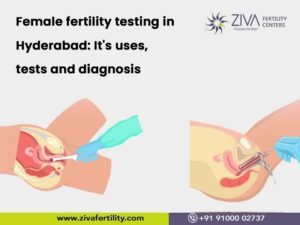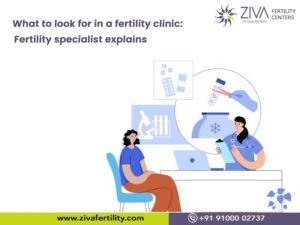In the Pre-COVID era, Non-communicable Diseases (NCDs) were the silent pandemic worldwide. Diabetes, Hyper-Tension, Autoimmune diseases, and cardiac issues are rising. In women, Polycystic ovary syndrome, also known as PCOS, is rising due to a sedentary lifestyle, unhealthy eating habits, and stress. PCOS is a hormonal disorder resulting from both genetic and environmental factors. Treatment of PCOS largely revolves around lifestyle changes such as weight loss and exercise. Though it is a very common condition, there is no proper awareness of it, like diabetes, hypertension etc. In this blog, we will educate you about
What is polycystic ovary syndrome (PCOS)?
Polycystic ovary syndrome (PCOS) is a common hormonal disorder seen among women of reproductive age. In the case of PCOS, the ovaries develop follicles which are numerous small collections of fluid and do not release eggs regularly. Women suffering from PCOS produce an excessive level of the male hormones, i.e. androgen and testosterone. This adversely affects the ovulation process crucial for pregnancy.
What causes PCOS?
Though medically the exact cause is not known, genetics and lifestyle play a major role. The exact cause of PCOS is unknown. However, genetics and heredity may play a role in the development of PCOS. Uncontrolled diabetes also leads to PCOS.
How to identify that I am developing PCOS?
Look out for any of the below indications that might suggest that you are on the path to diabetes:
- Excess hair growth on the face
- Unexplained weight gain
- Hair loss or thinning of scalp hair
- Sudden oily skin or acne.
What are the problems associated with PCOS?
If you observe any of the above-mentioned signs, it is good to consult your doctor. If left untreated, PCOS can lead to long term issues such as:
- Infertility in cases where the ovulation process gets affected.
- Irregular or prolonged menstrual periods.
- The increased weight will bring additional problems of its own.
- Acne and excessive hair growth on the face or body.
How is PCOS diagnosed?
To diagnose PCOS, your doctor will thoroughly understand your medical history. Hormonal blood tests are tested, especially the androgens, FSH, LH, thyroid hormones, blood sugar, and fasting insulin levels. In extreme cases, ultrasound will show swollen ovaries or plenty of small follicles in the ovaries.
What is the treatment of PCOS?
As with any lifestyle-based disease, PCOS can only be controlled. Mainly one should control calorie intake, do regular exercise, sleep peacefully and undisturbed, cutting down on alcohol and smoking. Your doctor might recommend medication and nutritional supplements for good hormonal balance. One can also undertake specific treatments aimed at infertility, hirsutism, acne or obesity are also advised to those who have PCOS.
Is PCOS a life-threatening condition?
The condition of PCOS itself is not life-threatening. But the issue with lifestyle-based NCDs is that they will cause other health issues that can be life-threatening. PCOS is associated with insulin resistance, leading to an increased risk of diabetes, stroke, obesity, sleep apnea, cholesterol, increased triglycerides, hypertension, and heart diseases.
What are the associated conditions of PCOS?
Body image issues are often associated with PCOS due to excessive facial hair, acne, scalp hair thinning and obesity. Mood swings and depression are often observed in those suffering from PCOS. But even a 5% loss of body weight can drastically relieve you from PCOS.
What diet should someone with PCOS follow?
Since weight reduction is crucial in controlling weight loss, one should avoid high glycemic foods in the form of refined carbohydrates and sugars. Include high fibre, lean protein, adequate fats, vitamins and minerals in your diet as much as possible.
Can PCOS be prevented?
Eating right, regular exercise, tension and stress-free life can help prevent PCOS. Engage in any physical exercise for 30 minutes a day for 5 days a week.
If you or your loved one is suffering from PCOS or is suspected of having PCOS, then reach out to ZIVA clinics for a personal session. We will guide you precisely on what lifestyle modifications you need to do and how to control PCOS. Even if you are planning for a baby but have concerns due to PCOS, we will guide you through the whole process. We are very happy to inform you that we at ZIVA clinics have helped many women with PCOS enjoy motherhood. Reach out to us at +91-9100002737, +91-9392834024
, Info@zivafertility.com or visit us at https://zivafertility.com/.
















